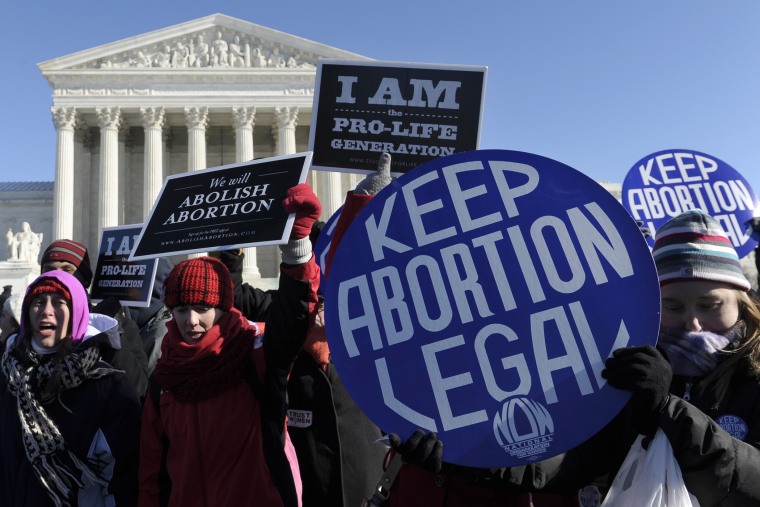A couple of years ago, around the time of the presidential election, a Pew Research Center poll found about two-thirds of Americans agreed that Roe v. Wade should not be overturned. There's new data that suggests public attitudes have remained quite consistent on the issue.
As President Trump prepares to make a new Supreme Court nomination, new polling from the Kaiser Family Foundation finds that two-thirds (67%) of the public do not want the Supreme Court to overturn the 1973 landmark Roe v. Wade decision that established women's constitutional right to abortion.Fielded this month prior to Justice Anthony Kennedy's retirement announcement, the poll finds about three in 10 Americans (29%) say they want the Supreme Court to overturn Roe v. Wade.
Once Donald Trump replaces Kennedy with an opponent of reproductive rights, most of the public will not be pleased once the high court's even-more-conservative majority rules on the issue.
As is often the case, there was a sizable partisan split -- most GOP voters want the court precedent to be overturned, most Democratic voters do not -- but it's worth emphasizing that even among Republicans, the results were far from one-sided.
The report from the Kaiser Family Foundation found 53% of self-identified Republicans want to see Roe overturned, but a sizable 43% want the ruling's precedent to remain intact.
On hot-button social issues, we tend to expect polling to show deep divisions among Americans, but on a variety of fronts -- Roe v. Wade, background checks for gun purchases, DACA protections for Dreamers -- there's ample evidence that there are general consensus views.
They happen to be the views that the country's elected leaders ignore and disagree with.
Indeed, all of the levers of federal power are controlled by GOP policymakers, most of whom have focused their energies on wildly unpopular ideas such as approving tax breaks for the wealthy and stripping millions of Americans of their current health care benefits.
Jon Chait recently reflected on Republicans' comfort with "counter-majoritarian power," and there's growing evidence that the party's reliance on this dynamic is intensifying.
The GOP's vigorous support for gerrymandering and voter-suppression tactics is not an accident. For the right, it appears to be something of a necessity.
